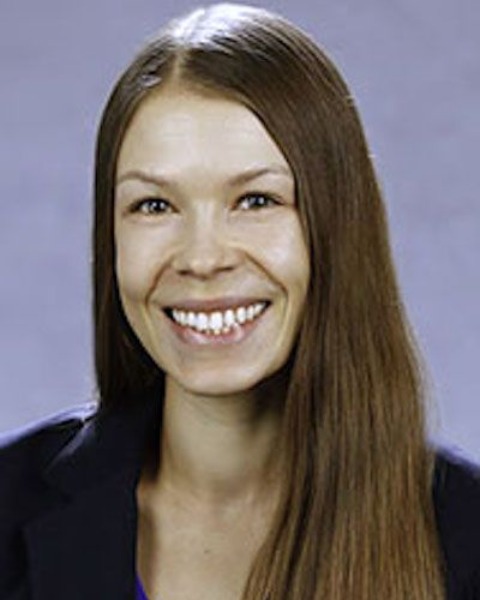Monday Poster Session
Category: Small Intestine
P2638 - Prevalence and Predictive Factors of Small Intestinal Bacterial Overgrowth in Patients with Chronic Fatigue Syndrome
Monday, October 23, 2023
10:30 AM - 4:15 PM PT
Location: Exhibit Hall

Has Audio

Elisa Karhu, MD, MS
Stanford University
Stanford, CA
Presenting Author(s)
Elisa Karhu, MD, MS1, Leila Neshatian, MD, MSc2, Ofer Fass, MD3, Irene Sonu, MD4, Linda Anh Nguyen, MD5
1Stanford University, Stanford, CA; 2Stanford, Redwood City, CA; 3Stanford University, Mountain View, CA; 4Stanford University School of Medicine, Redwood City, CA; 5Stanford University, Redwood City, CA
Introduction: Chronic fatigue syndrome (CFS) is a poorly understood illness, characterized by fatigue and related symptoms including cognitive dysfunction, headaches, joint pains, and gastrointestinal distress. Irritable bowel syndrome (IBS) is common and present in approximately 60% patients with CFS while the prevalence of small intestinal bacterial overgrowth (SIBO) in IBS is approximately 40%. Our study aimed to 1) Determine the prevalence of SIBO in patients with CFS with and without IBS symptoms 2) Identify factors associated with increased risk of SIBO.
Methods: A retrospective chart review of 479 patients with CFS referred for hydrogen/methane breath testing. Clinical documentation was reviewed to identify positive breath test result diagnosing SIBO. Statistical analysis was conducted with two-proportions z test and logistic regression analysis to identify predictive variables of SIBO diagnosis.
Results: 479 patients with CFS referred for glucose or lactulose breath testing were identified. 367 of those patients completed a breath test with available result: 152(41%) SIBO+ (mean age (SD) 50 (17)), 164(45%) SIBO- (mean age SD 46 (15)), and 78(21%) equivocal results. In CFS patients with conclusive breath test result, 48% tested positive for SIBO, and the diagnosis of IBS was present in 186/316 (59%). There was no difference in the prevalence of IBS between the SIBO+ vs. SIBO- group [98/152 (64%) vs. 88/164 (53%), p < 0.05]. Using multiple logistic regression analysis, age, unknown race, and IBS diagnosis all significantly predicted increased odds of having a positive breath test (Table 1). Conversely, PPI use was associated with decreased odds of a positive breath test. Due to the high prevalence of IBS in our cohort and the association between IBS and SIBO, an analysis was performed excluding patients with IBS diagnosis. When excluding patients with IBS, unknown race and TCA use were associated with increased odds of positive breath test, while diarrhea, hypothyroidism, PPI, and naltrexone use were associated with decreased odds (p< 0.05).
Discussion: SIBO is highly prevalent in patients with CFS referred for breath testing. Older age and comorbid IBS diagnosis predict increased odds of positive breath test. Surprisingly, PPI use predicted decreased odds despite its prior implication as a possible risk factor for SIBO. Further studies are needed to explore the underlying mechanism causing the overlap between CFS, IBS and SIBO which may provide insights into potential therapies for CFS.
Disclosures:
Elisa Karhu, MD, MS1, Leila Neshatian, MD, MSc2, Ofer Fass, MD3, Irene Sonu, MD4, Linda Anh Nguyen, MD5. P2638 - Prevalence and Predictive Factors of Small Intestinal Bacterial Overgrowth in Patients with Chronic Fatigue Syndrome, ACG 2023 Annual Scientific Meeting Abstracts. Vancouver, BC, Canada: American College of Gastroenterology.
1Stanford University, Stanford, CA; 2Stanford, Redwood City, CA; 3Stanford University, Mountain View, CA; 4Stanford University School of Medicine, Redwood City, CA; 5Stanford University, Redwood City, CA
Introduction: Chronic fatigue syndrome (CFS) is a poorly understood illness, characterized by fatigue and related symptoms including cognitive dysfunction, headaches, joint pains, and gastrointestinal distress. Irritable bowel syndrome (IBS) is common and present in approximately 60% patients with CFS while the prevalence of small intestinal bacterial overgrowth (SIBO) in IBS is approximately 40%. Our study aimed to 1) Determine the prevalence of SIBO in patients with CFS with and without IBS symptoms 2) Identify factors associated with increased risk of SIBO.
Methods: A retrospective chart review of 479 patients with CFS referred for hydrogen/methane breath testing. Clinical documentation was reviewed to identify positive breath test result diagnosing SIBO. Statistical analysis was conducted with two-proportions z test and logistic regression analysis to identify predictive variables of SIBO diagnosis.
Results: 479 patients with CFS referred for glucose or lactulose breath testing were identified. 367 of those patients completed a breath test with available result: 152(41%) SIBO+ (mean age (SD) 50 (17)), 164(45%) SIBO- (mean age SD 46 (15)), and 78(21%) equivocal results. In CFS patients with conclusive breath test result, 48% tested positive for SIBO, and the diagnosis of IBS was present in 186/316 (59%). There was no difference in the prevalence of IBS between the SIBO+ vs. SIBO- group [98/152 (64%) vs. 88/164 (53%), p < 0.05]. Using multiple logistic regression analysis, age, unknown race, and IBS diagnosis all significantly predicted increased odds of having a positive breath test (Table 1). Conversely, PPI use was associated with decreased odds of a positive breath test. Due to the high prevalence of IBS in our cohort and the association between IBS and SIBO, an analysis was performed excluding patients with IBS diagnosis. When excluding patients with IBS, unknown race and TCA use were associated with increased odds of positive breath test, while diarrhea, hypothyroidism, PPI, and naltrexone use were associated with decreased odds (p< 0.05).
Discussion: SIBO is highly prevalent in patients with CFS referred for breath testing. Older age and comorbid IBS diagnosis predict increased odds of positive breath test. Surprisingly, PPI use predicted decreased odds despite its prior implication as a possible risk factor for SIBO. Further studies are needed to explore the underlying mechanism causing the overlap between CFS, IBS and SIBO which may provide insights into potential therapies for CFS.
Disclosures:
Elisa Karhu indicated no relevant financial relationships.
Leila Neshatian: salix, Ardelyx, GI supply, Vibrant – Advisory Committee/Board Member, Consultant.
Ofer Fass indicated no relevant financial relationships.
Irene Sonu: Bold Health – Grant/Research Support.
Linda Anh Nguyen: Ardelyx – Consultant. Atmo Biosciences – Consultant. Bold Health – Grant/Research Support. Evoke – Consultant. Gemelli – Consultant. Impel – Consultant. Neurogastryx – Consultant. Pendulum – Consultant. Phathom – Consultant. RosVivo – Advisor or Review Panel Member. Takeda – Consultant.
Elisa Karhu, MD, MS1, Leila Neshatian, MD, MSc2, Ofer Fass, MD3, Irene Sonu, MD4, Linda Anh Nguyen, MD5. P2638 - Prevalence and Predictive Factors of Small Intestinal Bacterial Overgrowth in Patients with Chronic Fatigue Syndrome, ACG 2023 Annual Scientific Meeting Abstracts. Vancouver, BC, Canada: American College of Gastroenterology.
